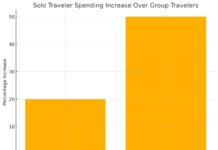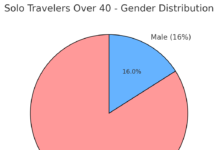
AI, or artificial intelligence, is the ability of machines or software to perform tasks that normally require human intelligence, such as understanding language, recognizing images, learning from data, and making decisions. AI can be applied to various aspects of travel and tourism, such as planning, booking, customer service, marketing, operations, and management. AI can help the travel industry in many ways, such as:
- Improving customer experience: AI can enhance the customer journey by providing personalized and relevant recommendations, offers, and services. AI can also improve customer communication and interaction by using chatbots or voice assistants that can understand natural language and provide instant and accurate responses. For example, KLM uses an AI-powered chatbot called BlueBot (BB) that can help customers book flights, check-in, change seats, or get flight information through Facebook Messenger or WhatsApp1.
- Increasing efficiency and productivity: AI can automate and streamline many tasks and processes that are repetitive, time-consuming, or error-prone. AI can also optimize the use of resources and assets by using data analysis and predictive models. For example, Expedia uses AI to create dynamic packages that combine flights, hotels, car rentals, and activities that suit each customer’s budget and preferences2. AI can also help reduce costs and waste by using smart sensors and IoT devices that can monitor and control energy consumption, temperature, lighting, etc.
- Driving innovation and growth: AI can enable new and innovative products and services that can create new value propositions and competitive advantages for travel providers. AI can also generate creative content such as images, videos, or texts that can attract and engage customers. For example, Contiki uses an AI tool called ChatGPT to create travel itineraries based on natural language prompts from customers3. AI can also create immersive experiences such as virtual reality (VR) or augmented reality (AR) that can enhance the travel journey. For example, Marriott uses VR to allow customers to explore different destinations and hotels before booking4.
AI is transforming the travel industry by creating smarter, seamless, and more sustainable travel experiences. However, AI also poses some challenges and risks that need to be addressed by travel providers, such as data quality and security, ethical and social implications, and business objectives. Travel providers need to adopt a strategic approach that considers these factors and leverages the best practices of AI Achievers in this industry. By doing so, they can unlock the full potential of AI and gain a competitive edge in the market.
























